Are you thinking of setting up a small business and becoming a sole trader, even though you’re still employed?
You’re not alone. Quite a few of our clients have done the same thing, or are in the process of doing so. And while each business is different, they all seem to ask us the same questions.
So here are five questions we often get asked, along with our answers.
Important note: This information is general in nature, and doesn’t take your particular circumstances into account. So if you’re thinking of setting up a small business, we suggest you discuss the implications with your accountant.
- My turnover is likely to be low. In fact, I may never make a profit. Does that make it a hobby rather than a business? The ATO provides guidelines on how to determine whether your activity has the characteristics of a business or a hobby. Put simply, if the activity is done more for pleasure than to make a profit then it’s most likely a hobby. And if that’s the case, the income you make from it doesn’t need to be declared.
- Do I need an Australian Business Number (ABN)? If you’re running a business (i.e. it’s not a hobby) then you will almost certainly need an ABN.There are exceptions, including some types of personal services income or party plan activities where the characteristics of a business are absent. In those cases, while the income is assessable an ABN is not required. Your ABN is an 11-digit number that’s unique to you—just like your tax file number. You can register as many business names as you like and run various business activities using your ABN. However, if you cease your business activities then you’ll need to cancel your ABN. (It’s easy to reapply for your ABN if you decide to get back into business at a future date.)
- Do I need to register a business name?No, it’s a matter of choice. However, if you don’t register a business name then your name becomes your de facto business name, which you’ll need to use on your invoices.It’s easy to register a business name online via the Australian Securities & investments Commission (ASIC) website. The fees, which are tax deductible, are currently $34 for one year or $79 for three years. Before registering, check whether the name you’ve chosen is available, and have your ABN handy.
- Do I need to register for the Goods and Services Tax (GST)?
If your turnover (money received from sales before expenses are deducted) is less than $75,000 then you don’t need to register. If you’re setting up a small part-time business, then you probably won’t make this amount in your first year (although there are exceptions). You can always start out without registering for GST, and then apply later if you approach the $75,000 threshold.However, you can register for GST even when your turnover is less than $75,000. If your setup costs are high, being able to claim the input tax credit can provide significant cost savings. But if your business has a small turnover and few expenses, the need to prepare and lodge Business Activity Statements (BASs) can outweigh the small financial benefits—especially if you need professional help to complete them each quarter. - Do I need to pay myself the super guarantee levy?In a word, no. However, the recent Federal Budget outlined a change where from 1 July 2017 employees could make after-tax contributions to their superannuation fund and then claim the contributions as a tax deduction. The total contributions, including the employer’s Super Guarantee Levy contributions, must be less than $25,000 (the new threshold).If your business is making a reasonable profit, it could be a tax-effective way to build up your retirement nest egg.
In our next blog post we’ll answer five more questions we get asked by those wanting to set up a small business while they’re still employed. But in the meantime, if you’d like any more information on what we’ve talked about here, don’t hesitate to get in touch with us.
